University of California, Berkeley | Plant & Microbial Biology
Pollen Mutants
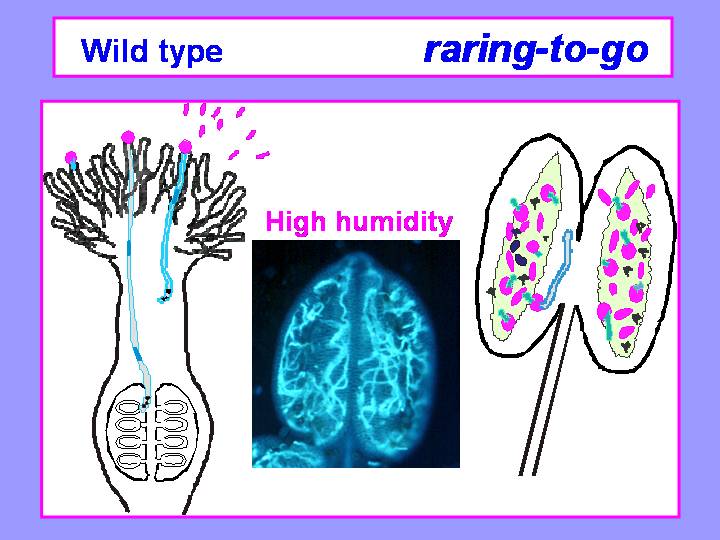
Pollen hydration is usually tightly regulated and in vivo occurs only when desiccated pollen grains acquire water from the female. In fact, in species exhibiting sporophytic self-incompatibility, the control of water uptake provides a mechanism for preventing self-pollinations. In Arabidopsis thaliana, a self-compatible plant, when a pollen grain contacts a stigma papillar cell, the pollen coat, composed of lipids and proteins, softens into a gelatinous mixture and flows onto the papillar surface. This bridge between the pollen grain and papillar cell establishes the route of water flow from the female tissue into the dessicated pollen grain. In the Arabidopsis mutant raring-to-go, the requirement for contact with the female is circumvented and some of the pollen grains form pollen tubes inside the anther.
This cartoon shows what happens during pollen hydration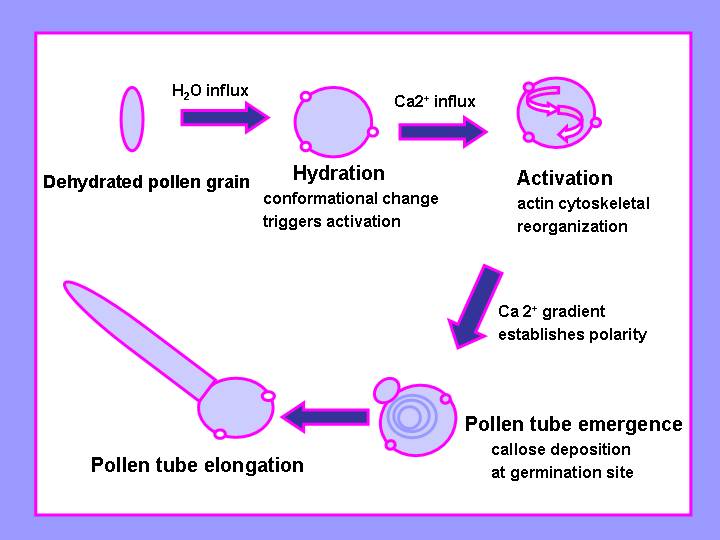
Pollen tube walls are largely made of callose and are brightly fluorescent when stained with decolorized aniline blue. To find more mutants with precocious pollen tubes, we screened pollen of an M1 population, as shown in the next cartoon.
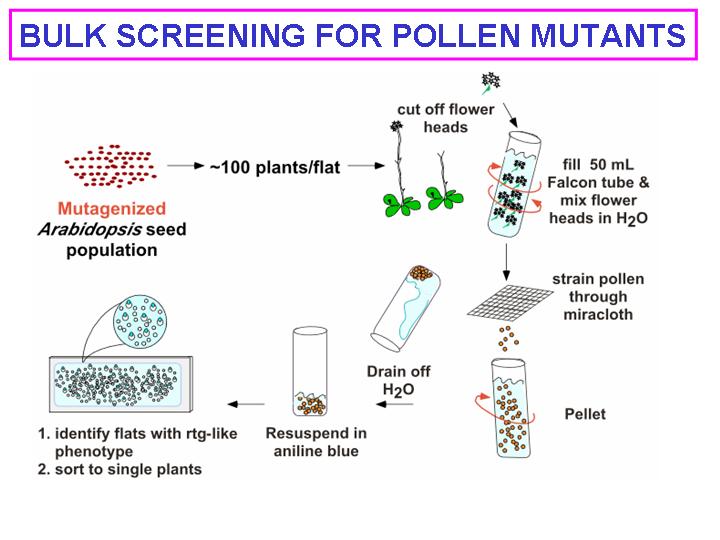
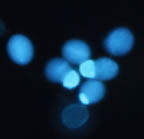
We found 7 other rtg-like mutants, so the screen was successful
But look what other mutants we found! gift-wrapped pollen (gwp) appears to have pollen tubes within the pollen grain! polka dot pollen has blobs of callose inside. emotionally fragile pollen has diffuse callose staining (callose is usually a stress response in the rest of the plant). We hope these mutants will help us dissect the roles that these gametophyte-expressed proteins play during pollen hydration and pollen tube growth.
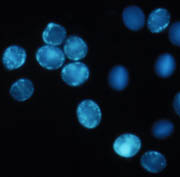 |
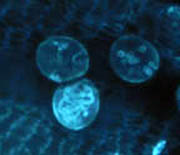 |
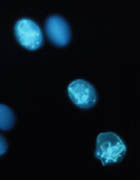 |
The work on raring-to-go is published. Johnson, S. and McCormick, S. 2001. Pollen germinates precociously in the anthers of raring-to-go, anArabidopsis thaliana gametophytic mutant. Plant Physiology 126: 685-695.
